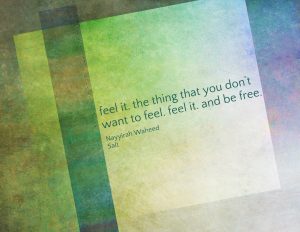I’m pretty new to the Instagram game. Really, I’m kind of new to the whole technology world in general. Our family with without a cellphone until late 2014 and so I didn’t really see the need to participate in the social media frenzy.
I don’t tweet, I’m not on Pinterest (minus the week I was, until I deleted my account, but that’s a whole other post). I don’t know what Snap Chat is, (or is it snapchat?), am not on LinkedIn (maybe I should be?), and have no idea what other apps are out there (except for Facebook…I’m totally sold on that one).
I was tempted to keep my active social media accounts at one, but some pretty special people in my life are Instagrammers. So I bit the bullet and recently joined to connect with some old college friends, a few family members, and follow a few inspirational folks who write good things. My list of people I follow has made it all the way up to 59.
What I have noticed though is that there are a handful of pictures and posts that have a tendency to get to me. I wondered if it was shame–comparing my real and messy life with the expertly-filtered, beautifully edited, highly posed pictures ? Nope. I notice grief.
Grief? Social media inflicted grief? Who would have thought? Not me, that’s for sure. But the heart tug of sorrow has been showing up more and more in unexpected places lately, and recently it tugged when I saw a photo posted by @sarahbessey of her four kids snuggled in close with their grandma.
It’s a heart tug I’ve been noticing more and more in the past year and a bit. And it shows up in odd places–not just Instagram.
- Picking up my kids from school,
- A photo sent of a dad and his adult daughter on a trip together,
- At the arena,
- Folding laundry,
- When I’m texting babysitters,
- Hearing people reminisce about grade school days with friends,
- Seeing adult siblings together and enjoying each other’s company.
I don’t doubt that taking courses on dying and death and all things grief, bereavement, and loss related has increased my awareness of some micro-losses. Losing a couple dads in the past few years – each which held very different sorrows, probably adds to the awareness of grief in my days.
Before I took the courses and lost my dads, I was quick to dismiss the feeling before I even consciously noticed it. I didn’t even pick up on the drop in my chest triggered by seemingly innocuous things.
I’m learning that these chest dropping moments don’t necessarily have to make sense to others, or be something that is societally ‘worthy’ of feeling sadness about. And it doesn’t even matter that the latest trigger was an Instagram photo that elicited such a reaction in me.
I am just going to roll with these grief triggers as they come. Reminders of my own sadness of a sibling far away, of not having grandparents for my children nearby and easily accessible.
We so easily talk ourselves out of what we’re feeling. Click To Tweet
Our intellectual self declares our small and squeaky feelings to be ‘no big deal’, or suggests that they don’t make sense so we should just pretend they don’t exist.
But these feelings of loss about seemingly small things are alive. When we try to kill them we miss their song.
I’m learning that rather than judge the heart tug, I just have to notice it with a bit of gentleness and make a little space to let it play out in my heart–without my head jumping in prematurely to shut it down.
And so I have, and continue to make room for sadness, longing, loss, jealousy, sorrow, and a host of other unpleasant yet very human feelings.
I am armed with new understanding that we re-grieve old losses at developmental milestones, and I am giving myself grace and space to feel and wish and sorrow for what wasn’t, what isn’t, and what won’t be.
And then I carry on with all that is and live in this beautiful and rich and full life that I have, until the next tug comes and I sit with longing or sorrow or sadness again. The echoes of loss are everywhere, whether we notice them is a whole other story.
In her 2013 collection of poems titled Salt., the poet Nayyirah Waheed writes:
feel it. the thing that you don’t
want to feel. feel it. and be free.

I want to move freely in this world, with all of me in tow.
Not tucking in or shoving parts down, silencing their hurt or sorrow or longing or anger, or whatever else a part of me may feel.
Most recently that has meant breathing deeply and making room for a sliver of lament about relationships I’d love to have – but don’t.
And it is okay.
It is okay to feel that longing, and okay to be grateful for the things I have. I can do both. I don’t have to silver-lining my sadness and dismiss it by convincing myself the good things make up for losses. I can have both sorrow and joy living side by side, respecting the space that each holds in my life.
So whether it’s Instagram, Facebook, a song, a stranger, or a random conversation – how do we acknowledge and make room for the tug of micro-losses? I think Nayyirah Waheed gives a brilliant starting point…we have to feel it to be free.






Write a Comment